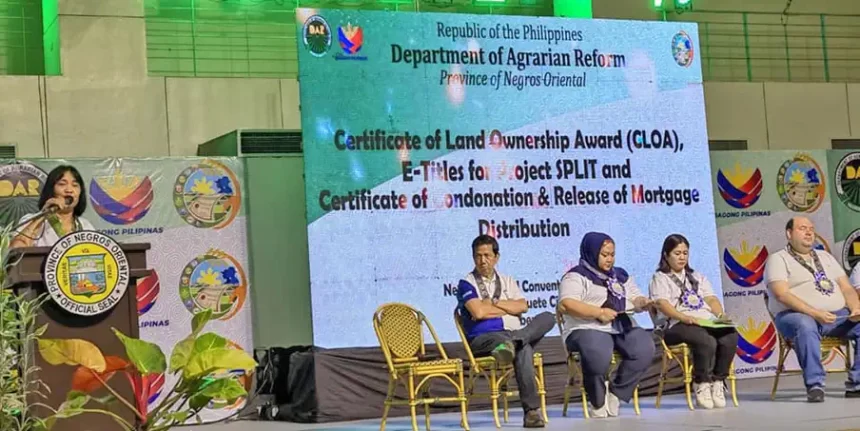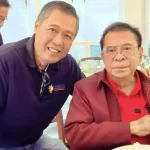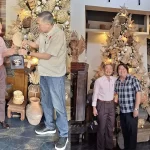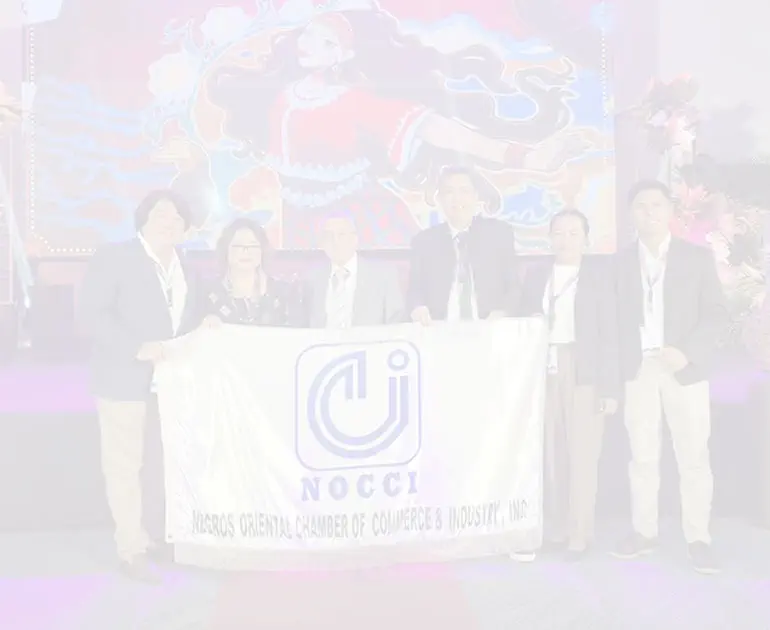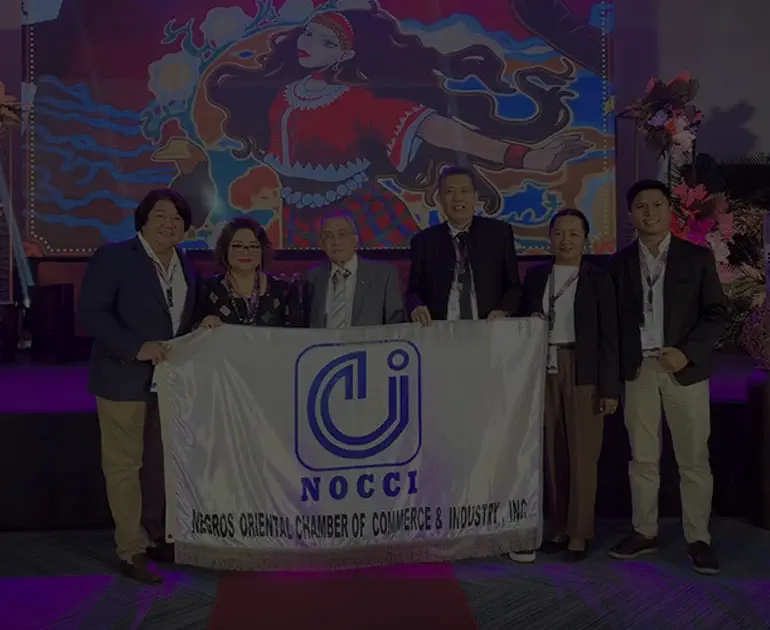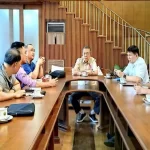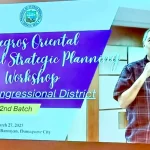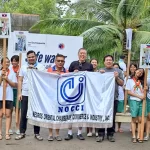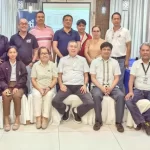Negros Oriental Chamber of Commerce and Industry (NOCCI) officers led by President Edward Du attended the distribution of Certificates of Land Ownership Award (CLOA) to 1,000 Comprehensive Agrarian Reform Program (CARP) beneficiaries in Negros Oriental. The event marked a significant step in recognizing the land rights of farmers and promoting agricultural development in the province.
NOCCI Advocates for Agrarian Reform at CLOA Distribution for 1,000 Farmers
In a landmark event underscoring its commitment to community development, the Negros Oriental Chamber of Commerce and Industry (NOCCI), led by President Edward Du, attended the distribution of Certificates of Land Ownership Award (CLOA) to 1,000 beneficiaries under the Comprehensive Agrarian Reform Program (CARP). The ceremony, held in Negros Oriental, celebrated a significant milestone in promoting agrarian reform and agricultural growth in the province.
The event was organized in collaboration with the Department of Agrarian Reform (DAR) and local government officials, reflecting a shared dedication to recognizing the land rights of farmers and fostering sustainable agricultural development.
A Step Forward for Agrarian Reform
The distribution of CLOAs is a core component of CARP, a government initiative aimed at redistributing agricultural lands to landless farmers and farmworkers to promote equity and productivity in the rural sector. By granting formal ownership of land, the program seeks to empower farmers to cultivate their land with confidence, ultimately contributing to food security and rural economic growth.
NOCCI President Edward Du expressed his support for the initiative, emphasizing its alignment with the chamber’s mission of fostering economic progress in Negros Oriental.
“Agriculture remains a cornerstone of our local economy. By empowering farmers with secure land ownership, we are not just uplifting individual lives but also strengthening the foundation of our province’s economic future,” Du said.
A Milestone for 1,000 Beneficiaries
The 1,000 beneficiaries, who were present to receive their CLOAs, represent diverse communities across Negros Oriental. Many of them have worked the land for decades without formal ownership, making this moment a long-awaited recognition of their contributions.
For farmer-beneficiary Maria Santos, the CLOA represents more than just a piece of paper—it is a symbol of hope and opportunity.
“With this title, I can finally call the land I have tilled for years my own. It gives me the freedom to dream of a better future for my family,” Santos shared during the event.
NOCCI’s Commitment to Rural Development
As a prominent advocate for economic growth in Negros Oriental, NOCCI has consistently championed initiatives that bridge gaps in development and promote inclusivity. President Du highlighted the importance of supporting agrarian reform as part of a broader strategy to enhance the province’s economic resilience.
“We believe that true progress happens when no one is left behind. Supporting agrarian reform is one way we can ensure that farmers, who are at the heart of our economy, receive the recognition and resources they deserve,” Du said.
NOCCI has also committed to exploring partnerships with stakeholders to provide ongoing support to CARP beneficiaries, including access to training, technology, and financial assistance to maximize the productivity of their newly acquired lands.
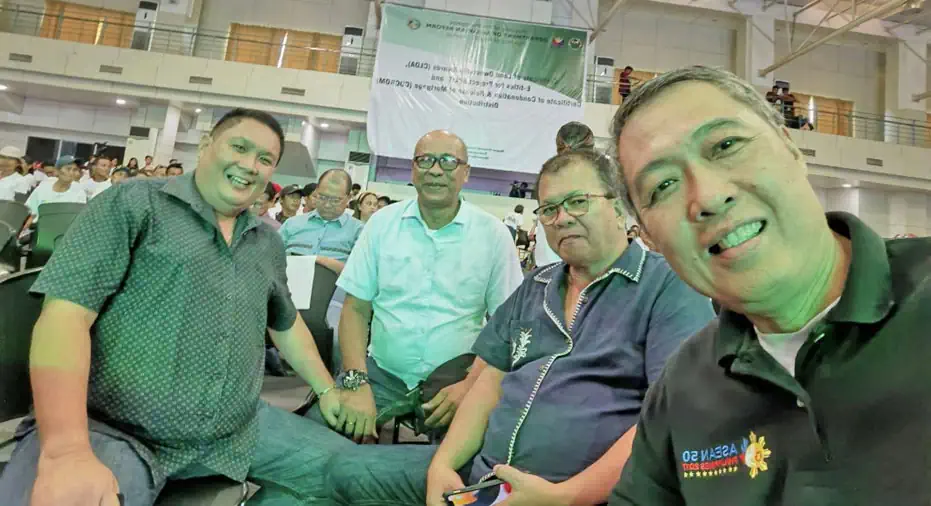
Collaboration for Agricultural Growth
The successful implementation of CARP relies on collaboration between government agencies, private organizations, and local communities. The event underscored the vital role of partnerships in achieving sustainable development goals.
Provincial officials and representatives from DAR commended NOCCI for its proactive involvement in agrarian reform initiatives and emphasized the importance of continued collaboration to uplift the agricultural sector.
DAR Provincial Director Atty. Elma B. Mojica, who led the distribution ceremony, noted that agrarian reform is more than just land distribution—it is about creating opportunities for farmers to thrive.
“Land ownership is the first step. The real challenge lies in ensuring that our farmers have the tools, knowledge, and support they need to make their lands productive and profitable,” Mojica said.
Challenges and Opportunities Ahead
While the CLOA distribution marks a significant achievement, challenges remain in fully realizing the potential of agrarian reform. Many farmers face obstacles such as limited access to capital, outdated farming techniques, and inadequate infrastructure.
NOCCI, in partnership with DAR and other stakeholders, aims to address these issues by advocating for policies that support agricultural innovation, capacity-building programs, and market access for farmers.
President Du reiterated NOCCI’s commitment to providing platforms for dialogue and collaboration to overcome these challenges:
“We need to work together to turn these newly acquired lands into thriving farms that can sustain livelihoods and drive economic growth. This requires a concerted effort from both the public and private sectors.”
Looking Toward a Brighter Future
The distribution of CLOAs to 1,000 farmers is more than just an act of land redistribution—it is a testament to the power of collaboration and the enduring spirit of Negros Oriental’s farming communities.
As NOCCI continues to advocate for programs that empower local farmers, the chamber’s leadership in fostering inclusive growth remains unwavering. President Du called on stakeholders to remain steadfast in their support for agrarian reform and rural development.
“This is a moment of triumph for our farmers, but it is also a call to action for all of us. Let us build on this momentum and continue working toward a future where every farmer has the opportunity to succeed,” Du concluded.
The CLOA distribution ceremony highlights the transformative potential of agrarian reform in Negros Oriental. Through collaborative efforts and a shared commitment to uplifting farmers, the province is poised to cultivate a future of prosperity and inclusivity, with agriculture as its backbone.


